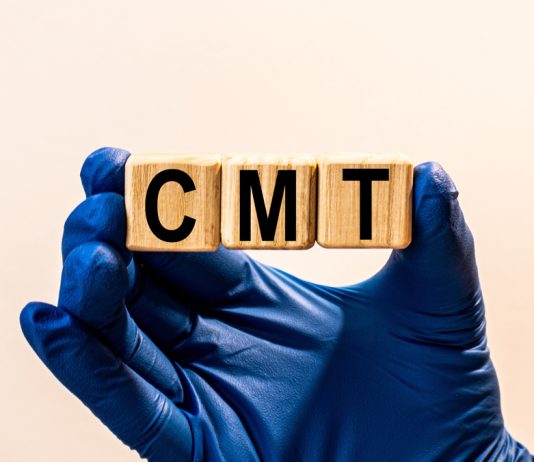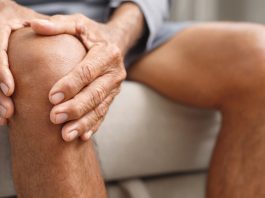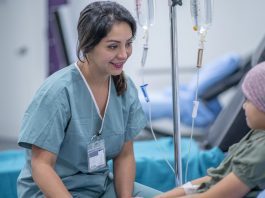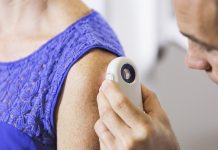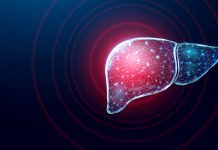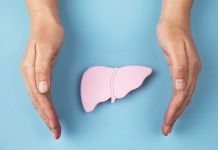Artificial Intelligence could be used to improve skin cancer treatment
Researchers from the University of Helsinki have developed an Artificial Intelligence (AI) model that could be used to improve skin cancer treatment.
The researchers have...
Researchers use 3D bioprinting to develop a diabetes treatment
Queen’s University Belfast researchers have designed a new bandage treatment using 3D bioprinting, which could revolutionise diabetes treatment.
Diabetes is a lifelong condition that causes...
Psychotic disorders may increase the risk of dementia
According to research from University College London, people diagnosed with psychotic disorders are 2.5 times more likely to develop dementia.
The research, which has been...
Transforming cancer care through genomics
Lorna Rothery spoke to Parker Moss, Chief Partnership Officer at Genomics England about how the organisation’s Cancer 2.0 initiative is harnessing the potential of...
Liver cancer cases set to rise by 55% in the coming decades
Researchers have called for more to be done to control liver cancer as cases are set to rise by 55% by 2040.
Primary liver cancer...
The potential of gene mutation testing for epithelial ovarian cancer
Scientists from the University of Manchester have discovered that two gene families are linked to epithelial ovarian cancer risk.
Epithelial ovarian cancer is the most...
Challenges in the prevention and treatment of pressure injuries
Board members of the National Pressure Injury Advisory Panel outline the key issues in the prevention and treatment of pressure injuries and share some...
Understanding the neurological symptoms associated with COVID-19
New research from King’s College London may have uncovered the reason why people experienced negative neurological symptoms after contracting COVID-19.
During a recent study, researchers...
Early onset dementia can increase suicide risk
A study from Queen Mary University of London and the University of Nottingham has found that the risk of suicide is seven times higher...
Children with Down’s syndrome are highly susceptible to diabetes
According to new research from Queen Mary University of London and King's College London, young adults and children with Down’s syndrome are four times more...
New marker found that may improve the treatment of ALS disease
Researchers have identified a new method for predicting clinical outcomes for patients with ALS disease through magnetoencephalography.
The study by the Human Brain Project has...
Healthcare workers more likely to suffer from burnout during COVID-19
A new study found that healthcare staff working during the COVID-19 pandemic are up to 3.3 times more likely to feel burnout compared to...
21.5% increase in people accessing talking therapies
New figures from NHS Digital show a staggering 21.5% rise in the number of people accessing talking therapies from 2020-21 to 2021-22.
NHS talking therapies...
Addressing sex and gender in cardiology care
Lorna Rothery spoke to Professor Angela Maas, an internationally recognised expert in women’s cardiology care, about why we must approach cardiovascular care differently for...
Tackling challenges in cancer through global collaboration
Cancer Grand Challenges is an initiative bringing together a global community of investigators and world-class research teams to address some of the toughest challenges...
New biobank created to boost children’s cancer research
In an exciting announcement, two UK universities have joined together with two cancer charities to create a young people's and children’s cancer biobank.
The Universities...
A high-fibre diet could increase the risk of liver cancer
A high-fibre diet may increase the risk of liver cancer in some individuals, according to new research from the University of Toledo.
A fibre-rich diet...
Scientists make a significant discovery about Duchenne muscular dystrophy
Researchers from the University of Portsmouth have found a more effective way to treat Duchenne muscular dystrophy.
Duchenne muscular dystrophy is caused by a genetic...
New immunotherapy treatment for breast cancer may possible
Researchers from King’s College London and the Institute of Cancer Research have identified immune cell types that could be used to develop a new...
Reusable contact lenses increase Acanthamoeba keratitis risk
People who wear reusable contact lenses are nearly four times more likely to develop Acanthamoeba keratitis compared to daily disposable users.
New research by University...


